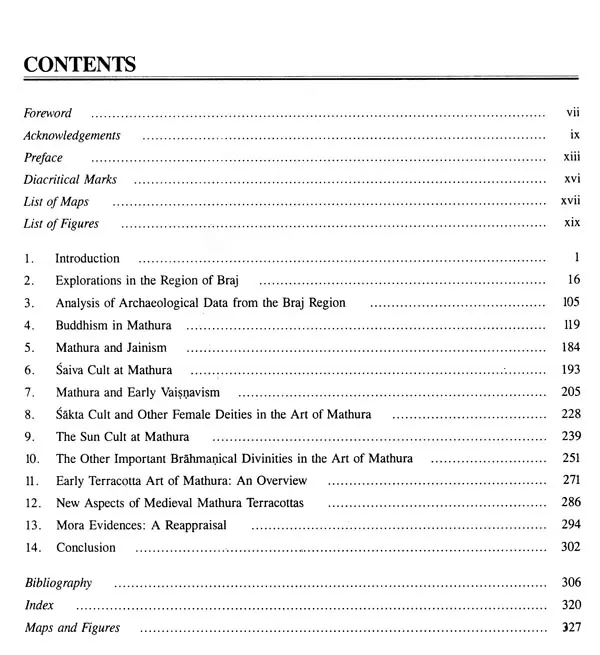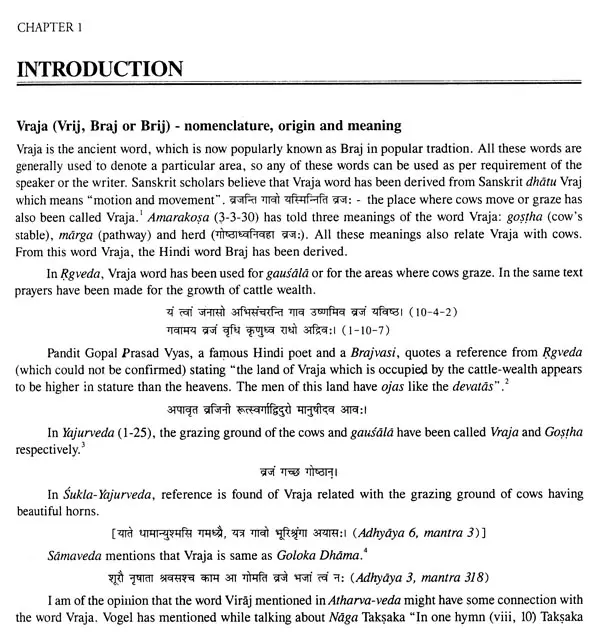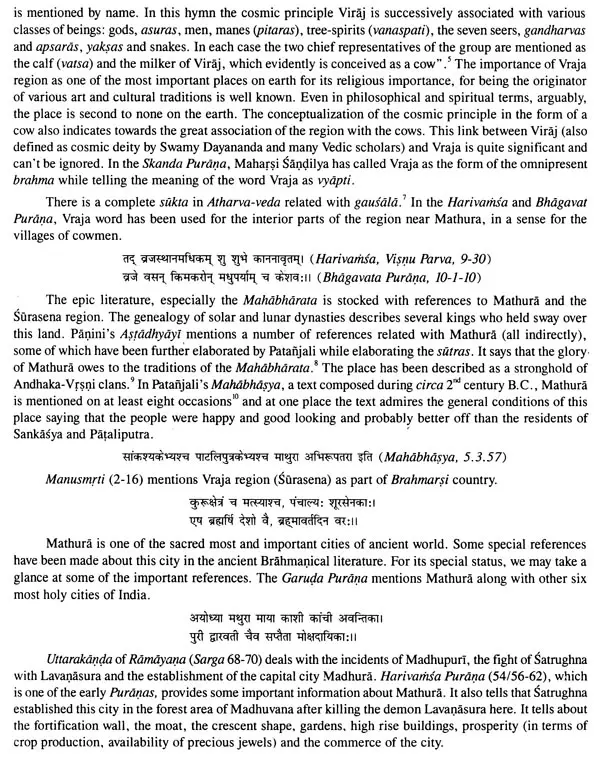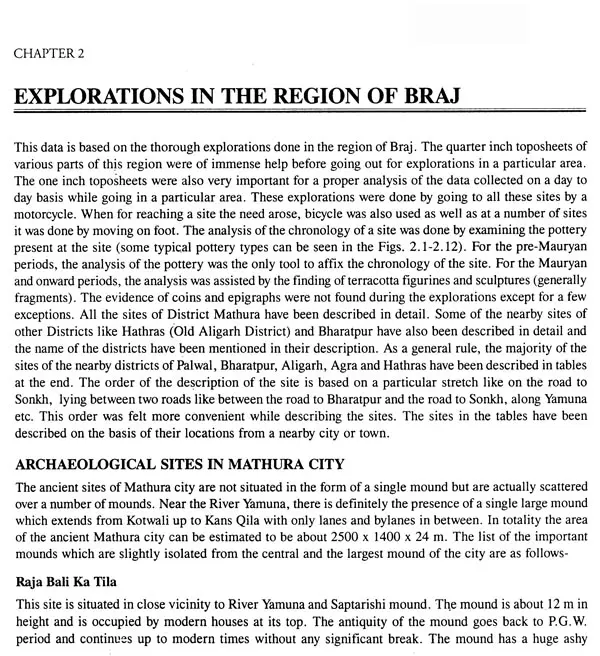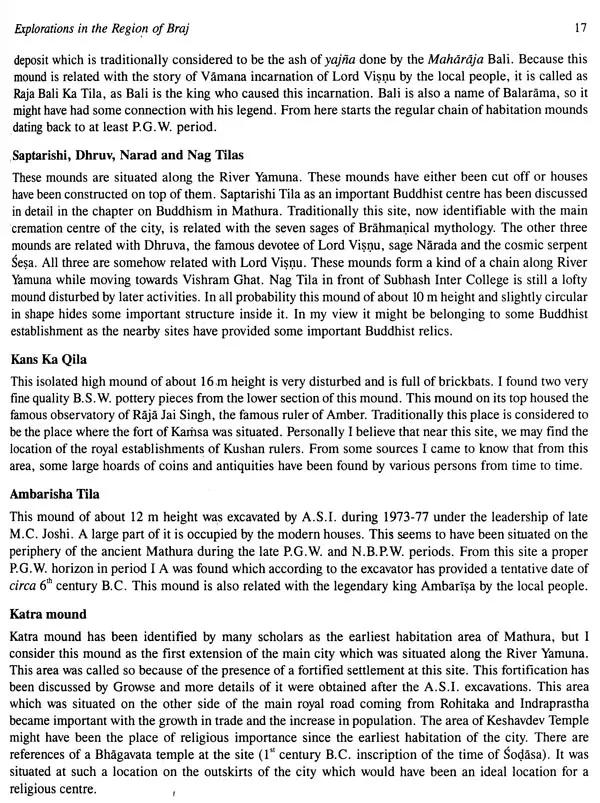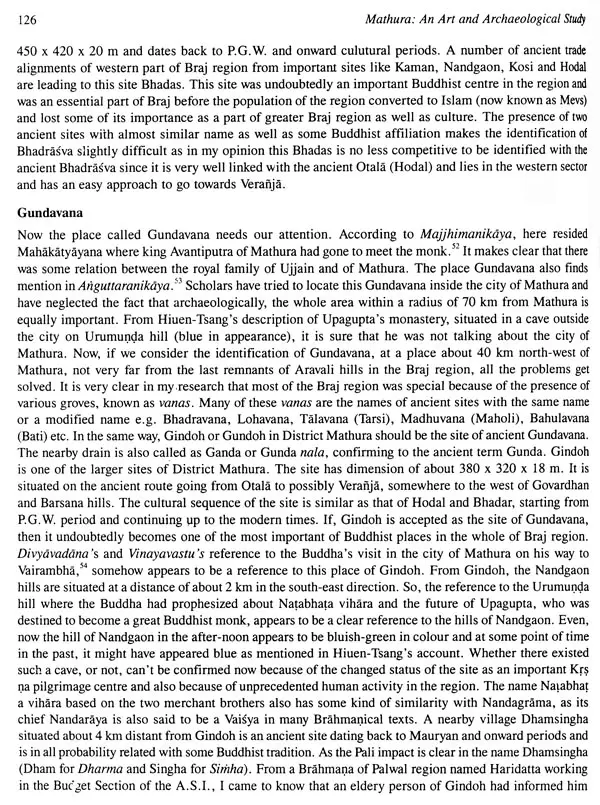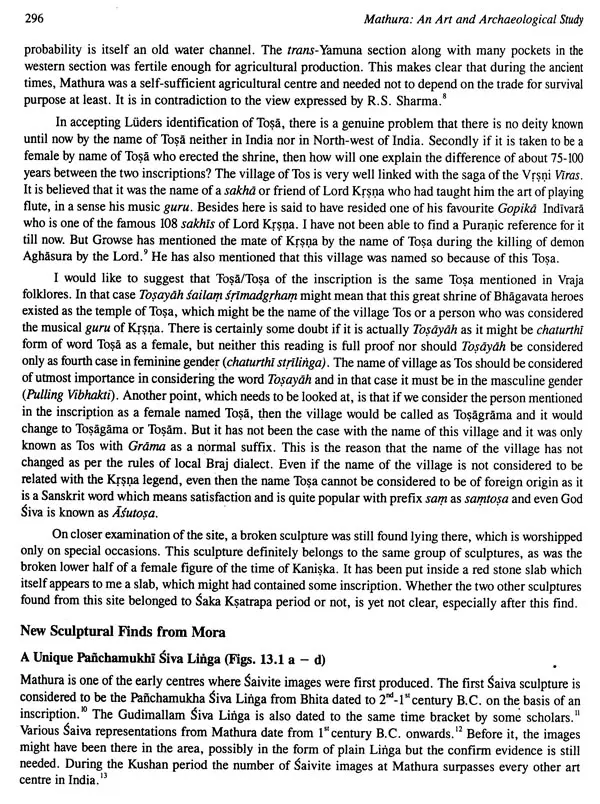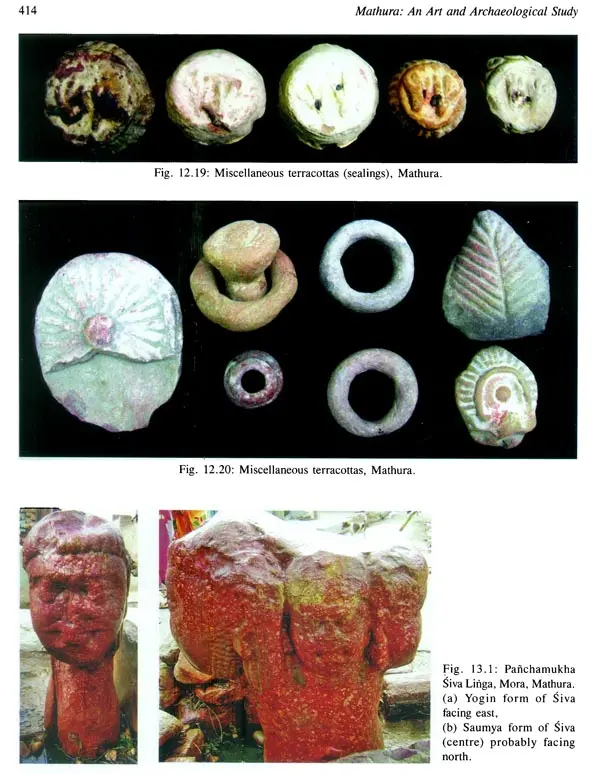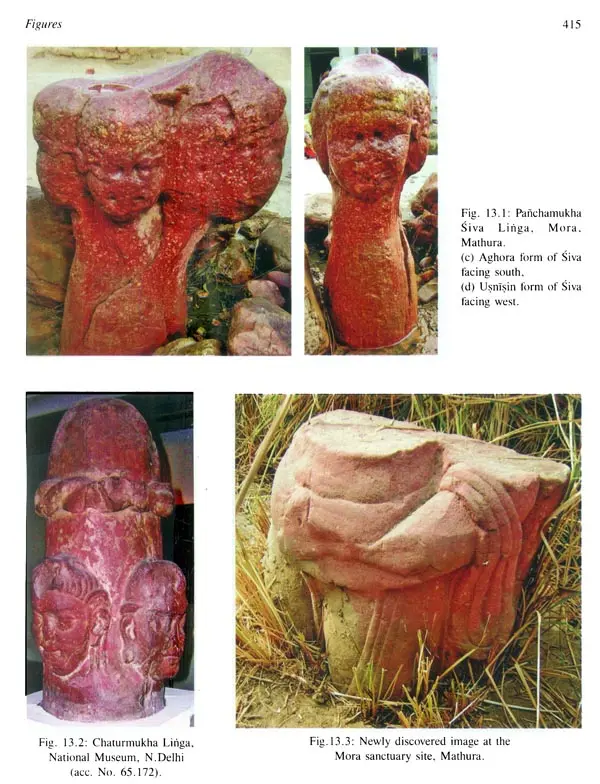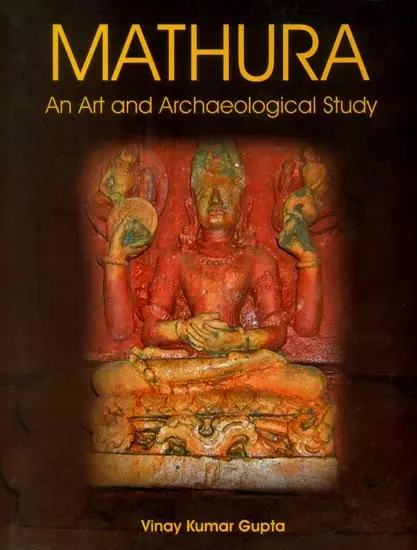About the Book
This book presents a comprehensive account of art and archaeology of Braj region which covers a wide area in and around Mathura district, Uttar Pradesh in India. The area of Mathura is world famous for its art heritage but till recently no comprehensive archaeological record is available for this region. It is for the first time that this book is bringing out the data of this very important region whi includes about a thousand explored st and hundreds of terracotta’s a sculptures discovered from various site and villages in the area of about 11,500 square km taken up for field surveys. An analysis of settlement pattern and the probable ancient routes has been done which provides several very interesting facts. Some of the Saiva, Vaisnava, Säkta and other Brahmanical sculptures including Surya, Ganesa, Skanda, Yaksas are too important to be overlooked and provide some new vistas in iconographical research. In the area of Buddhism and Jainism also, the book provides very important data, including identification of ancient sites and a broader picture of these religions in the area concerned along with new sculptural finds belonging to these sects.
The book, supported with notes, references and bibliography is well illustrated and tries to overcome many shortcomings related with information on the art and archaeology of the Braj region.
About the Author
Vinay Kumar Gupta, (b.1981) completed his BSc (PCM) from Mathura in 2001, Masters in Archaeology and Heritage Management from Indraprastha University, Delhi in 2003 with a Gold Medal, Post Graduate Diploma in Archaeology from Institute of Archaeology in 2005 all in first division. He qualified UGC-JRP/NET in Archaeology in 2003 and did his Ph.D. on the topic "Braj: An Art and Archaeological Study from National Museum Institute, New Delhi. He has also done Masters in Sanskrit from Dr B.R. Ambedkar University, Agra and has learnt Japanese language for two years qualifying JLPT Level 3. He has participated in a month long workshop on Cultural Heritage Management at Smithsonian Museum, Washington DC and University of Wisconsin, Madison in USA. He has delivered a prestigious talk on Mathura at Nehru Memorial Museum and Library, New Delhi at such a young age. He is widely travelled throughout India and has participated in a number of excavations including important Harappan sites of Khirsara, Bhirrana, Baror and historical site of Hansi. He has a large number of newly explored sites to his credit along with important artefacts and antiquities. Presently he is working as Consultant (Publication) in the Archaeological Survey of India, N. Delhi where he has played important role in the editing work of various important publications.
Till recently, he was working as Consultant (Publication) in the Archaeological Survey of India, New Delhi where he played important rple in the editing work of various important publications. Presently, he is working as an Assistant Professor (Ancient Indian History, Culture and Archaeology) in the Central University of Sagar, Madhya Pradesh.
Foreword
This book is likely to remain the most comprehensive compendium of the archaeology and related ancient historical issues including those of sculpture and architecture, iconography, coins and inscriptions of the Mathura region for many years to come. Its strength primarily lies in the fact that its young author Vinay Kumar Gupta of Vrishni Kula or Varshneya is familiar with every bit of the concerned land and has spared no effort to understand its ancient history and archaeology. Those who are even briefly familiar with the archaeological and ancient historical richness of the Mathura region will deeply appreciate the fact that the ancient Mathura has been brought alive in the pages of Dr Gupta's book.
For me personally, the charm of the book lies in the documentation of its myriad of sites, mostly high mounds located possibly on high natural formations themselves. Such mounds are also seen in some profusion in the Etah and Etawah districts, possibly more in Etawah than in Etah. The Hathras area has also many of them, and if one remembers correctly, they extend in the south right up to Mainpuri. Dr Gupta's explorations have established Mathura as the hub of a vast route network: from Mathura to Ahichhatra; from Mathura to Rohitaka and beyond; from Mathura to Indraprastha; from Mathura to Sankisa and Kanauj; and from Mathura to west India through Rajasthan and Malwa. Along each of these lines, the sites noted by Dr Gupta serve as impeccable markers. The relative significance of these routes is always debatable, but I find the alignment through Rohitaka, Hansi, Hissar, Abohar and beyond interesting. Similarly, one is excited by the old alignment which one notices along the Mathura> Deegh>Rupbas> Dholpur> Ranthambhor axis leading to Malwa and the interior of Rajasthan. An important byproduct of this study is a much more clear idea of the archaeological topography of Mathura as an ancient settlement.
Those who are not mere archaeological way farers will also find interesting points regarding diverse features of Mathura's history at every step in this book. Of special significance is the exhaustive literary documentation that its author has undertaken on the ancient Vraja, and the same may be said about the wealth of its sculptural and iconographical details. It is very heartening to note that Dr Gupta has proved himself to be as much of a master of iconographic studies as he apparently is of the ground survey of archaeological ruins.
Ancient Vraja is a very lovely area to know. Many years ago I saw a Chinkara deer jumping about near a railway track, and on another occasion, a Chital was peering at us through the millet stalks in the outskirts of a village. In the monsoon, during the Parikrama season, the hospitality extended to the pilgrims by the villagers is unbelievable in this modern world and times. The dusty tracks of the villages in summer, winter and spring seem to have a special charm of their own.
Preface
There also cultural ancient past unparalleled. These factors for somehow realize that region Braj is best region doing kind of Indological 1 had instincts for archeological field entering archaeology, decided thorough investigation the July my Ph.D. on the continuous urge up also helped deciding topic have respect writings. Some scholars me from generalized one to specific as the trend stuck my that there is huge scope for generalized then would be improper to do a right my approach, only the scholars able to through my Many for have thought that Mathura been much explored region not strong potential findings but this exploratory would help consolidating the one of in many reasons. the initial stages of thought only to focus archaeological aspects and the work art history was to providing brief new art objects found. But during period research, developed strong liking the studies in iconography. Hence the resultant work would equally important for the archaeological and the studies; this is actually what my Ph.D. thesis suggested.
The selected for the present research work is about 11,500 square km considering Mathura city centre radius about 60 km for this roughly circular area. This area covers the district Mathura, major parts districts of Bhagalpur and Hathras and parts districts of Aligarh, Agra, Mewat Palwal. time is specific as the main emphasis been on ancient period (from earliest times, P.G.W., to Kushan period) throughout terracotta studies cultural periods been included keeping in mind importance. Although, have tried work important aspects and cult of various deities the art of Mathura; an important aspect about the royal portraits the Kushan of Mathura has been left because firstly didn't find any portrait during explorations and also because it has been dealt with enormous precision J.M. Rosenfield and other great scholars. Some terracotta figurines have been discussed the chapter early terracotta’s. Numismatic and epigraphic survey the purview this research.
Book's Contents and Sample Pages

